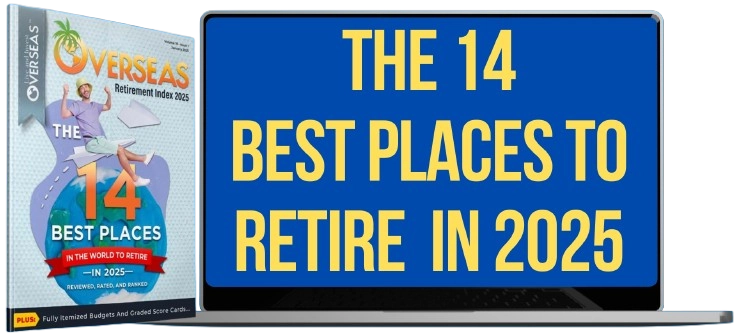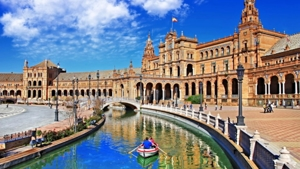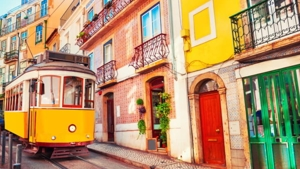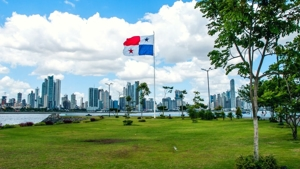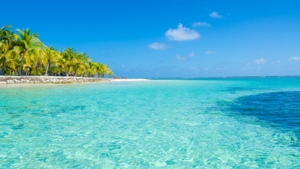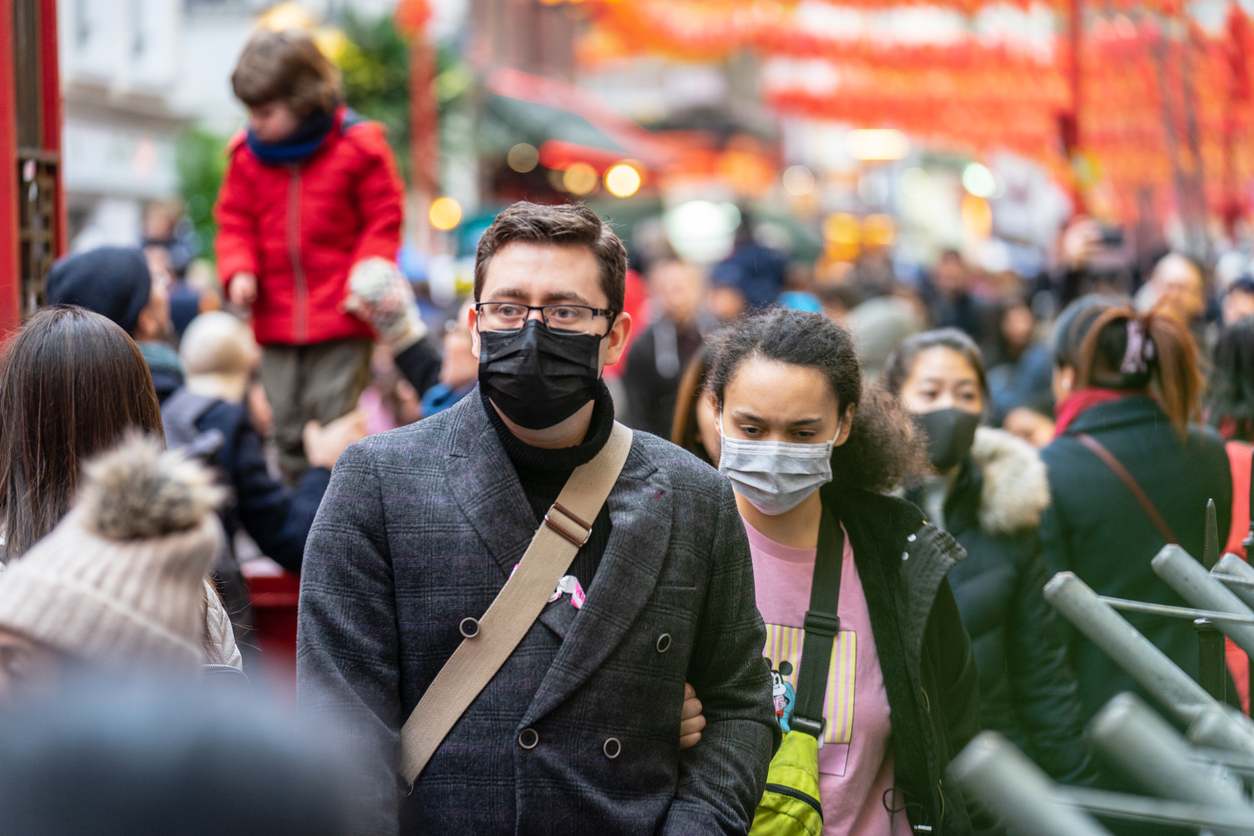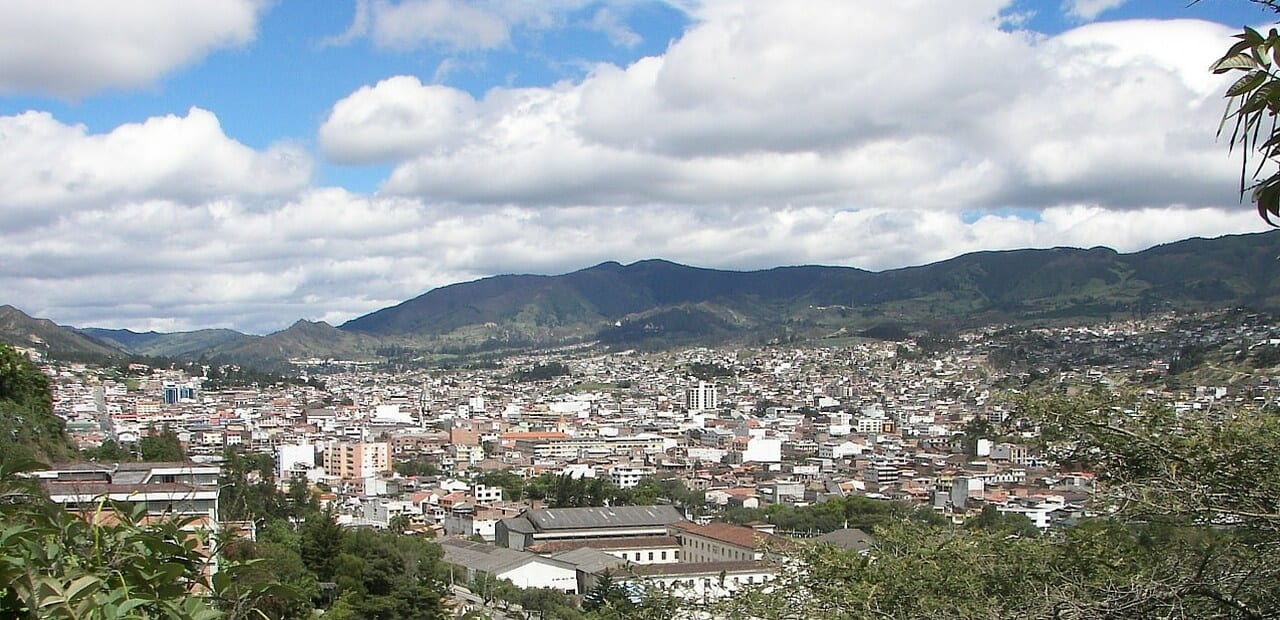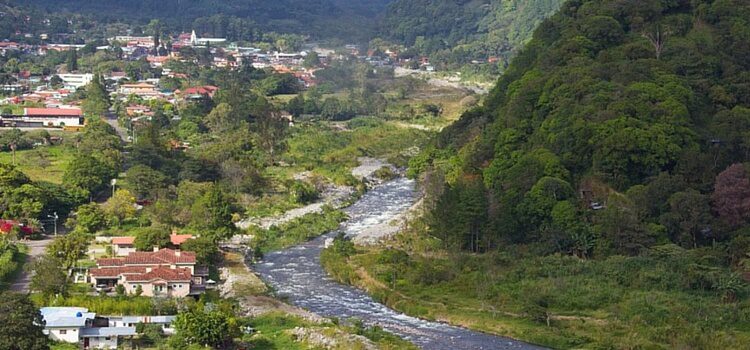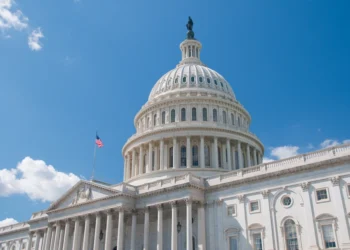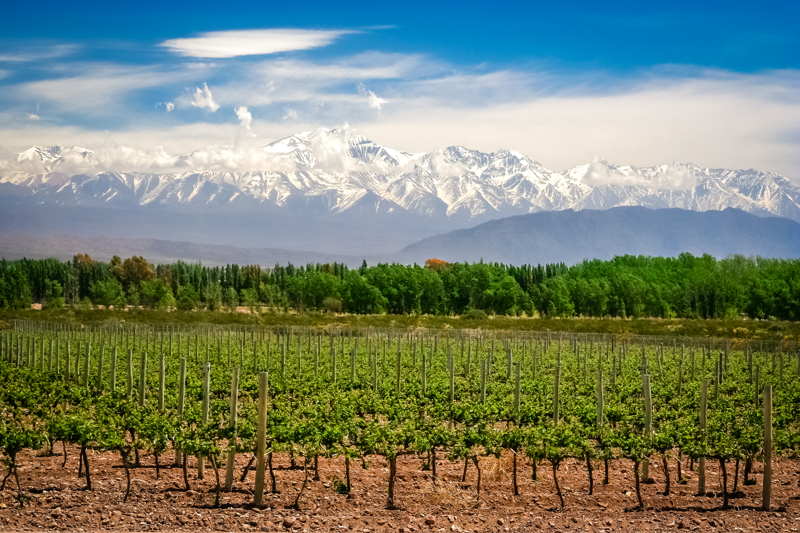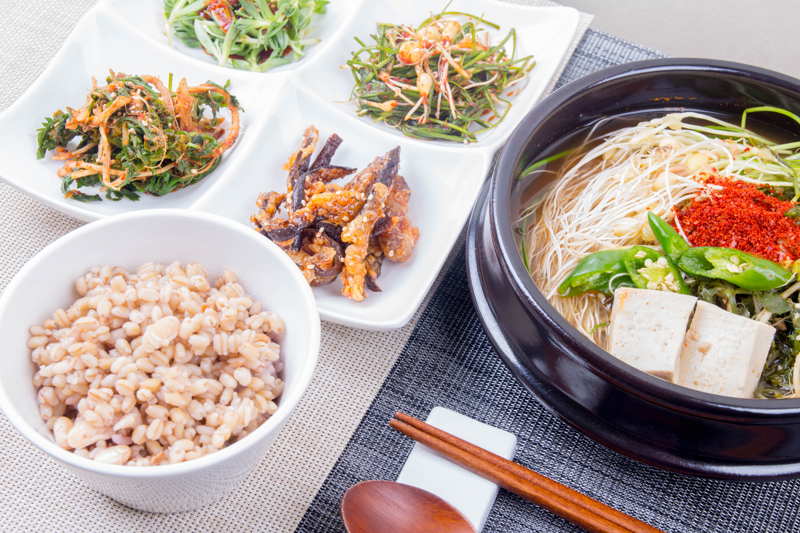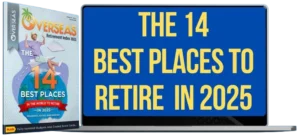You may not want or be able to travel to any of these places now. But the current situation is temporary. When the travel bans and stay-at-home orders are lifted… where should you consider for your Plan B?
The current crisis has served to highlight the need for a backup plan. People who live in major cities especially should be thinking about diversifying overseas. The importance of a bolt-hole where you can ride out the storm has never been so clear.
How To Minimize Your Chances Of Catching The Coronavirus
The best way to avoid the Coronavirus is to stay away from possible carriers. This would mean limiting contact with other people as much as you can. However, this isn’t always practical. Not to mention being cooped up on your own for an extended time isn’t much fun.
Moving to remote areas where the virus has not reached is always a good plan. You are far less likely to come across a carrier in a quiet country town than in a major city.
On a personal level, the most important thing you can do is wash your hands regularly with soap and water. You should also avoid touching your face and mouth as much as possible. If you were to touch a contaminated surface and then your mouth, you could become infected that way
When out in public, try to keep at least 1 meter between yourself and other people. You can contract the virus at close distances. Keeping your distance will lessen the chances of becoming infected. Be respectful of others, and cover your mouth when sneezing or coughing.
How To Avoid The Coronavirus Or Another Pandemic By Living Overseas
To escape a pandemic you want to be out of a population center. In most cases, humans are the main carriers of disease. Avoid people and you minimize your chance of infection. Big, International cities can be especially dangerous places, with potential carriers coming from across the globe. If the Coronavirus hits a new country, you can almost guarantee the first cases will be in cities with international airports.
So you need to head somewhere remote. Somewhere without a lot of international travel.
But also somewhere where you can be self-sufficient. If global trade is impacted then you will need to be in a place where you can make sure you have your own food and water supply.
You want to be in a place where you can live off the grid. Somewhere where life will not be impacted by events in the rest of the world.
Medellín, Colombia
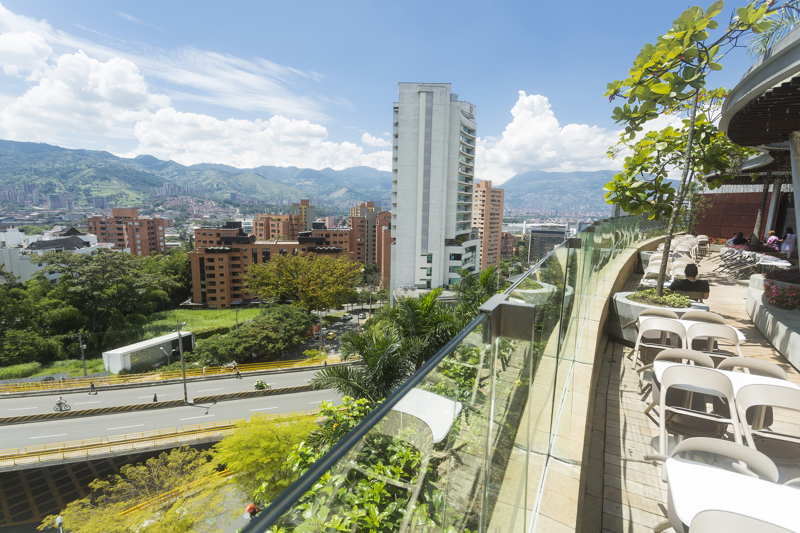
We consider Medellín as one of the best places to escape coronavirus for many reasons. In Medellín, you’ll find health care that outranks the United States and Canada. According to the World Health Organization, Colombia’s health care system ranks 22nd in the world while Canada comes in at #30 and the United States #37.
In 2019, Medellín was awarded The World’s Smartest City by Newsweek Magazine and among the 24 Best Places to Retire Abroad by Forbes Magazine.
Medellín is growing at an exponential rate as one of the most progressive, forward-thinking, and innovative cities in the world. Construction is everywhere, especially new high-rise projects in the expat-heavy areas.
Location
Colombia occupies the northwest corner of South America and is bordered by Panama, Venezuela, Brazil, Peru, and Ecuador. It’s the only South American country with coastlines on both the Pacific and the Caribbean.
Medellín is located in the northern third of the country, within the Aburrá Valley of the Andes Mountains. It’s the capital of the Department of Antioquia, which is like a state or province.
Cost Of Living
Depending on your chosen lifestyle and location, your cost of living can vary tremendously. In general, the average cost of property, utilities, local items like fruits and vegetables, and entertainment will be drastically less in Colombia than in North America…
If you prefer imported items such as Peter Pan peanut butter, French wines, and U.S.-made electronics, expect to pay U.S. prices or more. Your cost of living will also depend on the estrato you choose.
For a full breakdown of the average monthly expenses you can expect in Medellín, go here.
Health Care
Colombia’s overall standard of care is the best in Latin America along with high quality medical facilities, which feature state-of-the-art equipment and techniques.
You’ll find many English-speaking doctors who trained in the States or Europe, however most of the staff don’t speak English and follow through can be frustrating. Colombia is home to 24 of the best 58 hospitals and clinics in Latin America and 9 of these top-ranking facilities are located in Medellín.
Medical Insurance: The basic local medical coverage, called EPS, is inexpensive and easy to acquire. It takes time to navigate the system, even for basic care and preventative check-ups. Similar to a PPO, you must seek care within a preferred system and network of providers. Some expats find it easier to pay for additional private coverage or pay out of pocket to receive faster care.
Private Insurance: You must have EPS coverage to apply for private insurance and the maximum age to enroll is 60. Your pre-existing conditions will be considered, and cost will vary depending on which carrier you choose, the level of coverage desired, and your medical history.
The benefits of private coverage include private hospital rooms, extra coverage for different conditions, no EPS co-pays, private doctor house calls, avoiding the gatekeeper primary physician referral system, and more.
As of today, there are three cases of coronavirus in Medellin—two males and one female that came from Spain.
Crime And Safety
Like any other big city, Medellín has crime. Since the late 1980s, the city’s homicide rate has dropped by 95%, the extreme poverty level has plummeted by 66%, and it doesn’t even in the top 50 of the most dangerous cities in the world. In fact, you’re generally safer here than you are in Baltimore, St. Louis, Detroit, or New Orleans.
The most common crime is pick-pocketing. With a little common sense and awareness, you can protect yourself from most dangerous situations. Most of the violence involves gang fights in particular areas of town. These are places you should not live, nor visit.
Getting To Medellín
The nearby José María Córdova International Airport is undergoing its second expansion in the past five years. New airlines are servicing Medellín with non-stoppassenger flights to 23 destinations in 7 countries.
Direct destinations include Madrid, Spain, along with Miami, Orlando, and Ft. Lauderdale, Florida, and New York.
Nicaragua
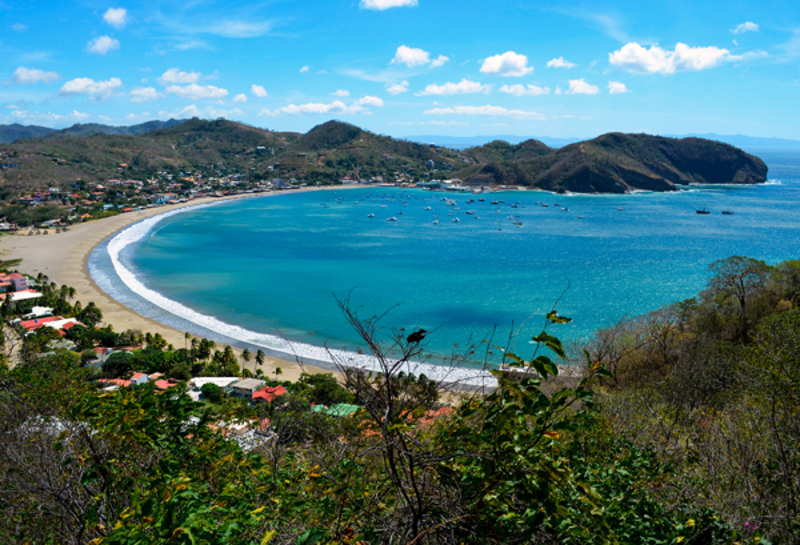
Affordable Living And Real Estate
Property prices in Nicaragua have fallen in recent years. This is mostly due to the political situation. In 2018 there were protests in several cities aimed at President Ortega, and his Social Security reforms. The protests turned violent and made headlines across the world. This led to tourists and retirees staying away. The property market fell sharply as a result.
There are signs today that Nicaragua is returning to normal. This is especially true in the countryside. If you are looking to buy a property in Nicaragua as a hedge against a future pandemic then now is the time to buy.
The cost of living in Nicaragua is also low. The dollar is stronger than ever against the Nicaraguan Cordoba. In Nicaragua your money will go considerably further than in the United States.
Live Off-Grid
In Nicaragua you can live off the grid, away from people. The soil is fertile and you can easily grow your own fruit and vegetables. If you live close to the sea you have easy access to fresh fish and seafood.
Nicaragua gets plenty of rainfall throughout the year to provide drinking water. A well and water purifying kit will ensure you never run dry. With a diesel generator and some solar panels and you could live for months in Nicaragua.
Diversify
The Coronavirus has had a massive impact on the stock market. Investors who failed to diversify have taken a big hit.
There is one investment continuing to provide strong returns to investors, agriculture. Nicaragua has some excellent investment opportunities to guarantee a cash flow in a crisis.
The first is teak. This tropical hardwood provides returns year on year. Even in an economic slowdown demand is still greater than supply. Teak investments can be fully turn-key. You buy the land, and a management company takes care of the rest. This is a generational investment and will provide you with a lifetimes worth of returns.
Nicaragua is one of the world’s top coffee producers. No matter what is happening in the world people will always need coffee. This is another investment that isn’t tied to the stock market.
Uruguay
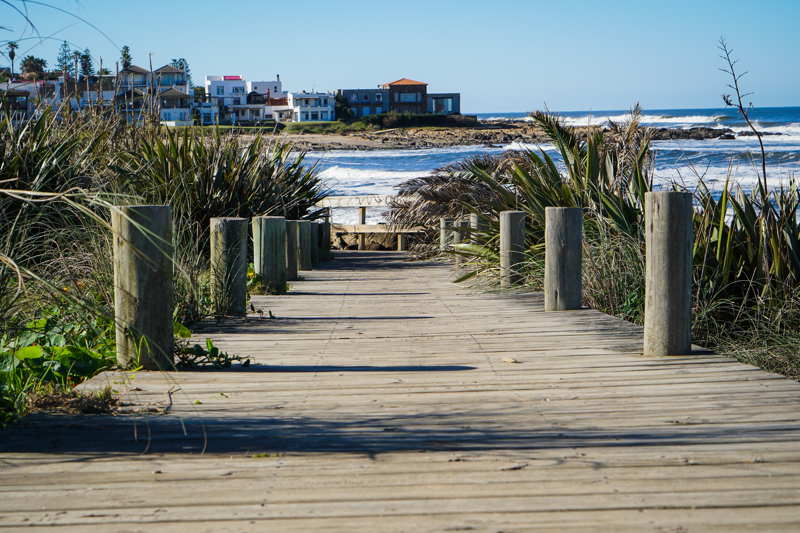
Uruguay has one last section of coast with undeveloped, pristine beaches… fine white sand bordered by deep blue Atlantic waters. It’s an area that has few developments, no high-rises, and over 100 miles of beaches dotted with small seaside towns.
We’re referring to Uruguay’s department (province) of Rocha. And the best news in Rocha is that property prices here are still relatively affordable when compared to the rest of Uruguay’s Atlantic coast. Rocha is the last frontier for Uruguayan beach real estate.
Why Is Rocha, Uruguay A Good Place To Escape To?
It’s unpretentious. In Argentine society, which heavily influences the real estate market in Uruguay, you usually don’t get bragging rights for buying in Rocha, like you would in Punta del Este or José Ignacio.
So bragging rights are not priced into the properties here, and people are more down-to-earth.
Rocha is less expensive than the more popular resorts farther down the coast towards Punta del Este.
Small friendly communities are the hallmark of Rocha. And it’s safe and secure. You’re far from the big city, with its higher crime and poverty.
Best of all, it’s part of Uruguay… a nonaggressive nation with its friendly, honest, and nonconfrontational people. Uruguay could be a first choice for a Plan B nation.
Being far from a big city means being far away from big conglomerations of people… the perfect place to avoid the spread of disease.
Great Exchange Rate
At the time of this writing, the exchange rate is 46 Uruguayan pesos per U.S. dollar. Years ago, it was around 18 per dollar, which makes Uruguay feel like a half-price sale today.
Properties in Uruguay are priced in dollars, so you won’t see an immediate advantage there. But everything else—from dinner out, to property taxes, to gasoline—will benefit from today’s historically-high exchange rate.
Quality And Affordable Health Care
Uruguay offers both private and public health care options at a fraction of the price you would find them in the United States. A lot of doctors can speak English, but a lot of the time you would need someone to translate for you. Even though Rocha isnot a main city, you can still find hospitals and clinics where you can get assisted with any medical concerns.
Belize
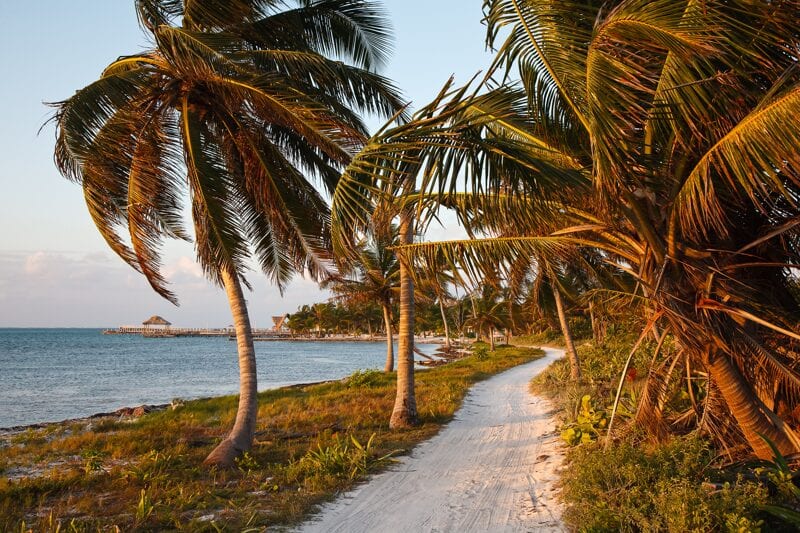
Outside of Belize City, the whole country is ideal Plan-B for escaping just about any type of major emergency. Ambergris Caye, the big tourist town on the beach is the only exception. The busy beach town is popular with tourists and many people live close together.
Luckily, Ambergris Caye isn’t the only option for living on the beach. Belize has plenty of quiet Cayes where you can live away from people. Homes here usually come with solar generators and large water tanks. Regardless of what’s going on in the outside world life here remains idyllic. Fruit and veg can be harder to find so you will need to be prepared and have plenty of canned goods. One big benefit is the endless supply of fresh fish.
The Best Place In Belize To Escape The Coronavirus
The best to escape the Coronavirus in Belize is the Cayo District. The area has everything you need to avoid a major pandemic. A lack of people, a lack of international travel, and plenty of fresh, natural products that you can easily grow yourself.
The Cayo District is the best place for a self-sufficient life in Belize. Although tourists come here to visit the Maya ruins, the rest of the region is quiet and sparsely populated.
You can drive for miles in Cayo without seeing a soul. This remoteness is perfect for limiting contact with other potential carriers.
Many houses in Cayo are designed for an off the grid lifestyle. With a little preparation, you can easily create a perfect bolt-hole to escape the Coronavirus or any other global emergency.
Solar panels will take care of your electricity needs. You can even combine this with a petrol backup generator and be sure of having power under any circumstances. Most houses here are built to make use of the prevailing winds. These winds will keep the house cool and avoid the need for air conditioning. You will find that you use very little electricity here.
Large water tanks and purifying kits can provide enough water for months. In some areas, you can dig a well to source an endless supply of fresh drinking water.
Cayo is Belize’s breadbasket. A huge variety of fruit and veg grow here. The tropical climate with lots of sun and water means that you don’t have to be a great farmer to reap a substantial harvest.
Belize is also close to the United States. You can even drive here should the need arise. This could be an important option to have in the case of a major emergency.
How Can I Get The Ball Rolling On My Belize Bunker?
One of the best things about Belize is the ease of getting residency. Thanks to the QRP program, retirees can relocate to Belize with the minimum of fuss.
In the case of a global crisis, this will be most important. It’s possible that countries would close their borders to outsiders during an emergency or pandemic. With a Belizean residency, they would have to let you in.
Belize is an inexpensive option too. Real Estate in Cayo is very cheap, as is the cost of living. If you like the idea of having a Plan-B but are worried about the cost, Belize is the answer.
And if the apocalypse never comes? Belize is a beautiful country with warm weather throughout the year. You can spend your winters here and never have to worry about shoveling snow again.
Loja, Ecuador
You’ll never regret moving to the “Music and Cultural Capital of Ecuador.”
Loja is modern, convenient, and has full-city services. Yet it retains the full cultural richness that’s made it unique in Ecuador. The countryside surrounding Loja is dramatic and beautiful, with green mountain peaks, idyllic valleys, and rushing rivers.
This is a good city to be in case of a pandemic, as the population is significantly lower when compared to other Ecuadorian cities like Quito or Cuenca, but there’s still everything you need: good health care, infrastructure, culture, and more.
For people who might be put off by the altitude, Loja also stands at a lower altitude than both Quito and Cuenca.
Health Care
Health care in Ecuador is recognized by many as the best value for your money in the entire world. You can receive medical care at a cost of only 10% to 25% of that in the United States.
In case of a medical emergency, there is no need to go anywhere else.
In Loja there are several labs, clinics, and good hospitals to choose from. A government-sponsored hospital can be found, as well as a private hospital—connected to the largest university in this city.
Cost Of Living
Loja is an affordable city to live in.
The city is walkable, so a car would be unnecessary in Loja. But if you need to cover larger distances, public transport is cheap and easy to use.
You can rent a two-bedroom apartment for about US$300 a month.
As far as groceries go, buying imported items will always be more expensive. To really save a buck, go to the markets in the city to find fresh produce, meats, fish, etc. This way you can spend around US$300 to US$400 a month for a couple.
Mazatlán, México
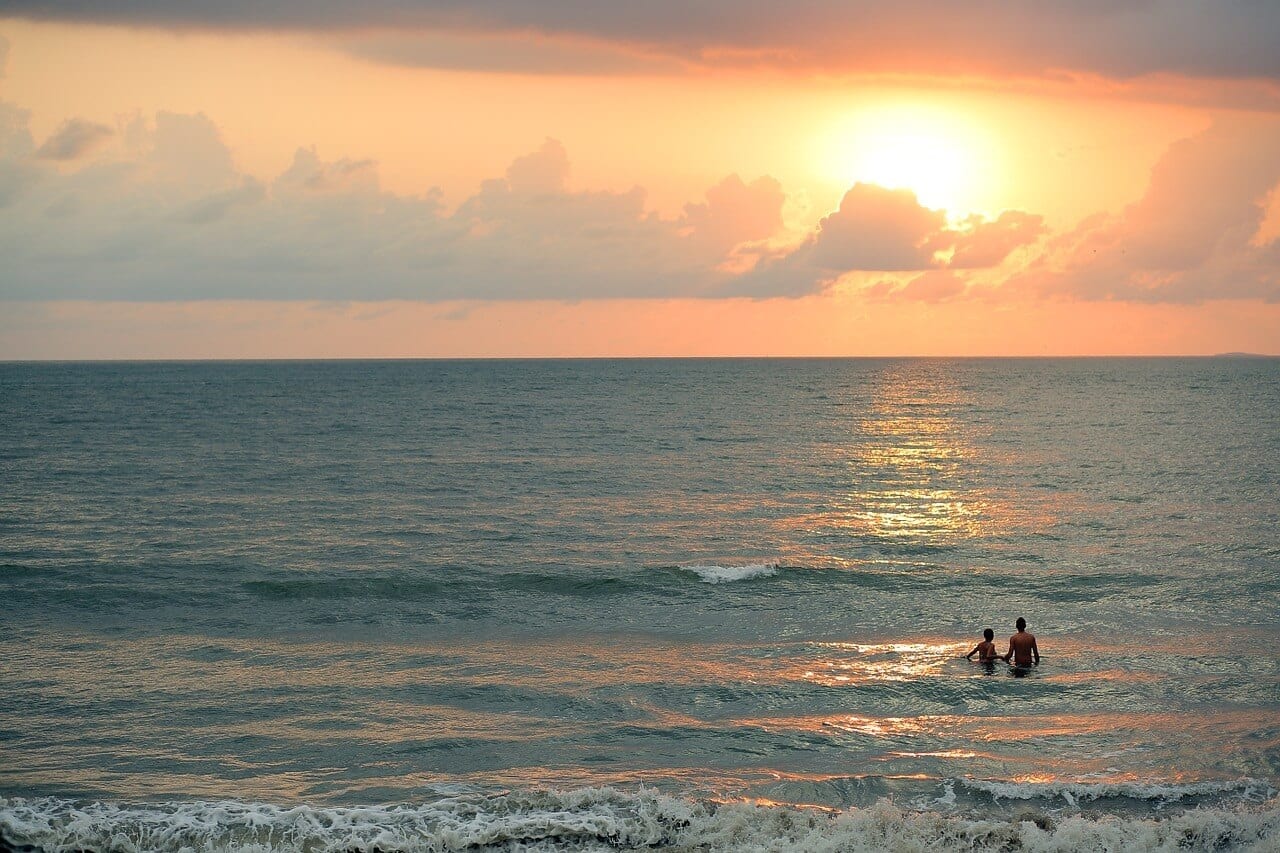
Earlier this year, we vetted Mazatlán, México as our #1 top choice to live and retire overseas, and we have also chosen Mazatlán as one of the best places to escape in case of Coronavirus.
Access To North America
One of the great and unique things about settling in Mazatlán is just how close it is to the United States—so close you can drive! The city is about 720 miles south of the Arizona border (1,160 km)… It’s a simple drive on highway 15D all the way, which takes about 14 hours to cover by car. Just get on the interstate in Tucson, Arizona, and get off at the exit for Mazatlán. (We suggest Ciudad Obregón as your overnight stopping point.)
If you prefer the quick flight, though, your options are also excellent. Just 20 minutes from the city, Mazatlán’s international airport offers a number of direct flights to the United States and Canada.
Food And Weather
Mazatlán is a foodie paradise, with miles of sandy beaches, a vibrant cultural scene, and excellent health care facilities similar to what you’ll find in North America.
Mazatlán’s weather is magnificent during the North American winter, with warm, sunny, dry days and cool nights. You can expect highs in the high-70s to low-80s during the depths of the winter (25°C to 26°C).
But during the summer, it can be hot and humid, with temperatures in the 90s (around 34°C). Mazatlán has a wet and a dry season, with rainfall generally occurring from June through August—the rainfall isn’t too heavy though, with less than 10 inches over the course of the year. When it does rain, humidity levels can climb to 80%.
Health Care
Mexico has universal health care, so everyone in the country is guaranteed coverage, and the care that is available can be excellent, but quality of care can vary from one facility to the next.
The best facilities have first-rate technology, English-speaking doctors, and low prices. Medical tourism is a fast-growing industry, with more Americans choosing to cross the border to seek quality, affordable health care in Mexico every year, and many Mexican doctors are trained in the United States, Europe, or Canada and speak English fluently.
Private facilities are the best option for expats, if you can afford them. They’re similar to what you’re used to in the States or Canada. The best way to begin this process is to find your preferred hospital first and then see which insurance plans they take. Some hospitals have staff who can help you make insurance claims, including from outside Mexico.
Expats of any age or employment status may sign up for IMSS, the national health care, provided you’re on a temporary or permanent residency visa. Many Americans in Mexico opt to keep basic Medicare, given that the trip home is so quick.
Culture And Entertainment
This city offers everything a truly First World city should offer by way of cultural entertainment. There’s an active live music scene, which is a great way to enjoy time with your friends and neighbors, as well as classical music, theater, and art, all popular with and well-attended by expats. You’ll find wine shops and cafés in every neighborhood.
Boquete, Panama
The ever-growing town of Boquete is worth considering in case of a pandemic. It’s about seven hours away from Panama City, it’s not overpopulated, and becoming more self-sufficient is possible.
Housing Options
The town is small, and it does seem cramped, but housing and other accommodations are not usually in the town center. As a result, it’s easier to have a little space of your own.
A popular area for housing is Palmira, a little before reaching the town of Boquete. Just as popular is Bajo Mono, about 10 minutes after the town center.
Boquete offers a variety of housing options… from wood cabins tucked in the hillside to sprawling family homes overlooking the mountains.
Language And Expat Community
Living here, many of your neighbors would be fellow North Americans. Finding like-minded compatriots to commiserate with over the trials and tribulations of daily life in a foreign country wouldn’t be hard.
Additionally, you won’t need to speak Spanish… The majority of restaurants and shops are run by expats… It’s an eclectic mix of cuisines and almost everywhere you go has English-speaking staff.
Grow Your Own Food
Boquete is an ideal place for someone who is looking to grow their own food. The weather is perfect for different kinds of fruits and vegetables. If you produce enough, you can sell your produce at the farmers market on Tuesdays.
In addition to fruits and veggies, if you’re a coffee-lover, Boquete is the perfect place to explore what coffee production life is like.
Health Care
Boquete is about 30 minutes away from David. Hospitals and clinics offer good and reliable health care.
Cost Of Living
Everyday consumables are slightly cheaper here than in the States, including the cost of American imports. The quality of local, fresh produce is significantly better than that available in most of the States.
If you own your own home, you can live in Boquete for about US$1,300 a month.

